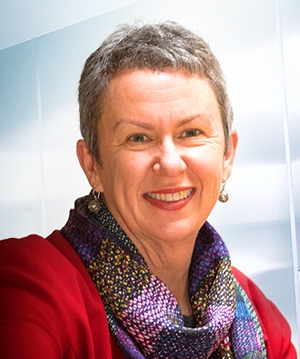Nurturing new times for midwives
Research news
Australia’s more than 30,000 midwives are set to gain an updated set of standards for contemporary practice, as a result of a major project led by Deakin University.
Researchers from Deakin’s Centre for Quality and Patient Safety Research (QPS SRC) have been awarded a major contract by the Australian Health Practitioner Regulation Agency (AHPRA) to review and update the Nursing and Midwifery Board of Australia's (NMBA) Midwife standards for practice.
Project leader, Associate Professor Cate Nagle, from Deakin’s School of Nursing and Midwifery and the QPS SRC, said that midwives’ “scope of practice” has changed over the past decade.
Today’s midwives are more likely to continue caring for women and their families from pregnancy, through to labour and birth, to postnatal care than was the case in the 80s and 90s.
“There is strong national and international evidence that continuity of care is achieving much better levels of satisfaction of care for women and is even making a difference to clinical outcomes, with decreased intervention and amount of pain relief required in labour,” she said.
“Today, women are more likely to be older when they give birth and they are more likely to enter pregnancy with complications, which means some women may require a higher level of care. When the pregnant woman has complex needs, the contemporary midwife needs to be an effective communicator and collaborator and work with a multidisciplinary team.”
Over the next 18 months, ten academics from five universities, and representatives from the Mercy Hospital for Women and the Australian Nurses’ and Midwifery Federation will review and upgrade the existing standards (published in 2006).
“The new standards will provide guidance on what is professional, legal, safe and evidence-based, as well as ethical midwifery practice,” Associate Professor Nagle said.
“It is most important that the new standards reflect contemporary practice across the variety of settings where midwives work.
“Midwives practice in metropolitan, regional, rural and remote locations within different models of care; in areas ranging from clinical care, primary care or community-based settings, to private practice, management, public health, education, and research and policy development.”
A highly experienced midwife herself, Associate Prof Nagle has been at Deakin for eight years, co-ordinating the Nursing and Midwifery double degree from 2009- 2015.
She will work part-time on the NMBA Midwife standards for practice project and will continue her research program within QPS and her research position at Western Health.
She noted that Deakin’s expertise and reputation in the field were probably important considerations in gaining the tender. In fact, Deakin offers one of Australia’s most respected nursing and midwifery research programs, gaining a rating of “Well above World Standard” (4) in the Excellence in Research for Australia (ERA) 2015 ratings.
“We assembled a really strong team, including academics who teach in direct entry, double degree and postgraduate courses, and were able to demonstrate detailed knowledge of the existing competency standards. We also have an excellent track record of successfully engaging, motivating and communicating with a diverse range of stakeholders,” she said.
Share this story
 Associate Professor Cate Nagle, from Deakin's Centre for Quality and Patient Safety Research.
Associate Professor Cate Nagle, from Deakin's Centre for Quality and Patient Safety Research.
